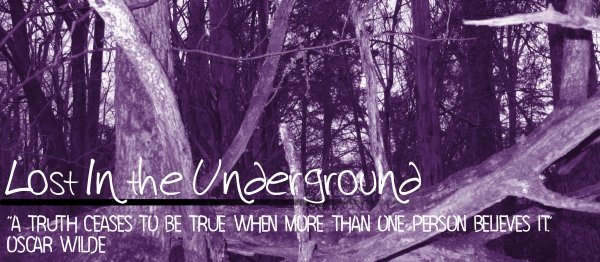I don't know and you don't either.
"Wisest is he who knows he knows nothing." Socrates
For some unknown reason, I lurk on a couple of CofC discussion boards of Facebook. (My justification is that occasionally someone had to jump in a remind folk that there's more than one way to skin a cat or read a Bible.) Anyway, on a fairly regular basis someone will bring up the difference between personal opinions and the supposedly cold hard facts of scripture. At this point, I might read one or two comments in the threads then decide that I'm putting too many dents in the desk and ignore the thread. (My tolerance is inversely proportional to the number of people incapable of typing whole words with appropriate use of capital letters.)
I've yet to see an argument providing objective, non-circular proof for a reading of the Bible as the literal, final, and inerrant Word of God. And I've heard plenty. There is, of course, the classic Second Timothy citation: "all Scripture is God-breathed and is useful for teaching, rebuking, correcting and training in righteousness" (3:16). I figured out at some point in high school that using that verse made no sense at all. First of all, Paul or Pseudo-Paul couldn't have been referring to the modern canon of the New Testament or even the modern canon of the Old Testament. Besides, any text could claim to be the word of God. Heck, I could claim to be speaking the word (version K, after versions A-J weren't sufficient) -- that would NOT mean that I actually am speaking the word of God. My sister just reported a similarly circular statement, "We know the Bible is true because Jesus is God." Really now?
Then, there's the archaeological, historical confirmation nonsense. First, I would like to make the point that just because a text has it's historical duckies in a row does not mean that it's interpretation of those facts is correct. Other historical records from the Ancient Near East do confirm a sizable percentage of the battles from the historical books. Of course, this means the Bible confirms those historical records -- so which interpretation of events is right? Was the Israelite army obliterated because the Israelites had angered YHWH, or because the gods of the invading group was more powerful than YHWH? Both claims are made by texts with their historical ducks (dates, places, etc.) in order. Further, there's archaeological evidence for other ancient text once believed to be pure fiction. The location of Troy was discovered by a zealous fan of Homer using the descriptions in the Odyssey -- obviously, therefore, we must also accept the theological claims of the Odyssey. I'm all for Artemis and plan to take up silver-smithing in her honor -- it goes along with m'name, you see.
Point is, none of these proofs are objective. Circular reasoning is just that, and the fact that portions of the Bible can be historically verified says nothing about the legitimacy of the interpretations and theological claims made. People choose to accept or not to accept the authority of the Bible -- that in and of itself is an opinion.
In high school I got into an argument with two Bible class teachers (I know, hardly a fair fight). It finally got around to one of the teachers in exasperation telling me that I just had to have faith that the Bible was literally true about whatever it was we were arguing about. That's great, I said, but I have faith that X (where x equals God gave me the same rights as the boys, or there's more than one way to God, etc.) is true and the Bible is wrong. You don't have to agree with me on X, but why isn't my faith as good as yours?
And that's the thing. Everything is, to one extent or another, an opinion even if you cite some outside source because humans make choices as to what they will regard as an authority. The Bible is not an objective authority because people have to choose or not choose to recognize it has authoritative. Most of these choices can be amply justified by subjective evidence specific to each individuals unique experience. I'm not going to tell anyone that they can't believe the Bible; I will tell them that they shouldn't expect everyone else on the planet to agree with them.
Subscribe to:
Post Comments (Atom)


1 comment:
When I told my mother that I didn't believe that the Bible was literally true, she was all like "You don't believe in God???"
Which was NOT what I said. But that's the way she understood it. At which point, I tried to explain to her that, having had several years of a foreign language, I could not in anyway believe that the translations we have today are completely accurate to the originial intent/meaning. So, even granting that the /original/ text was perfect (hahahahaha -- yeah, right), there's no way a rational person could believe what we have NOW is perfect.
Add to that the fact that I've got years of publishing/editing experience and I've seen what goes into editing, rewriting, 're-invisioning', etc. etc., etc. -- there is NO way that the current text is perfect, literal or in anyway not influenced by the beliefs/politics/grudges of the people doing the translation.
And then, when I tried to explain the Pagan origins of Christmas? I thought her head was going to explode. . .
And, btw, I'm partial to Persephone myself.
Post a Comment